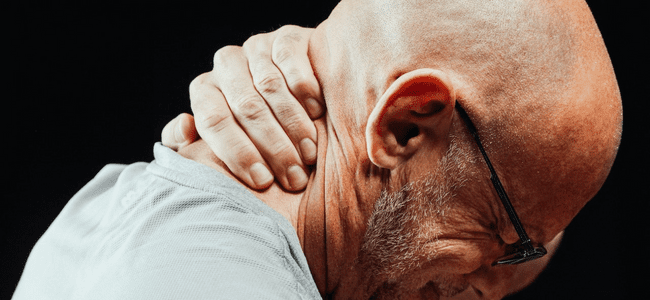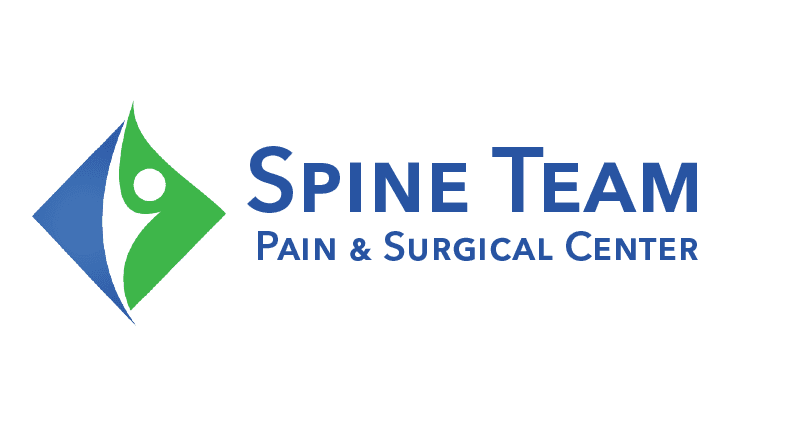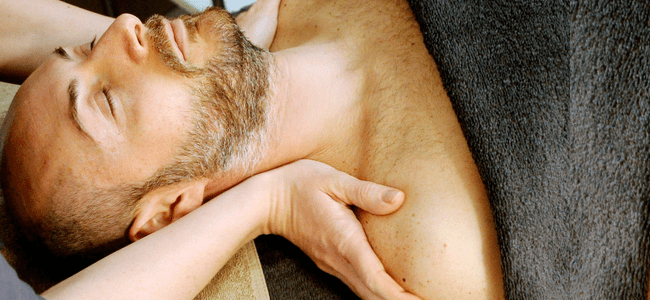Neck Pain? How To Relieve Stiff Neck Pain Fast

Have you ever woken up in the morning with a stiff neck that made it impossible to turn your head? It's an uncomfortable and often painful experience. If you're looking for Relieve Stiff Neck Pain Fast, then look no further, the Spokane Pain Management team is here to help you live a pain-free life by relieving stiff neck pain.
From understanding its causes and symptoms to exploring treatment options and prevention tips, we'll provide all the information necessary so that you can start living without discomfort again. So don't suffer in silence – let us help relieve your stiff neck pain today.
Treatment Options for Stiff Neck Pain
Physical Therapy and Exercise
Physical therapy can be a great way to reduce neck pain. A physical therapist will assess your range of motion, posture, and strength in order to create an individualized treatment plan for you.
This may include stretching exercises, strengthening exercises, neck pain exercises, postural correction techniques, manual therapies such as massage or joint mobilization, and more. Regular exercise is also important for maintaining healthy muscles that support the neck.
Massage Therapy
Massage therapy is an effective and popular solution for neck stiffness and pain. By decreasing muscle tension in the area, you can experience a greater sense of relaxation while easing any aches or pains that may linger.
Additionally, massage therapies promote proper blood flow and improved circulation - it brings essential nutrients and oxygen to your neck muscles which helps aid healing processes. For maximum benefit, consider consulting with a licensed massage therapist who has access to therapeutic oils or creams to make the entire treatment even more enjoyable!
Heat and Cold Therapy
Heat relaxes stiff muscles while cold therapy helps reduce inflammation in the area. You can use heating pad or hot water bottles on your neck for 15-20 minutes at a time several times per day to relieve tension in the area. Cold packs are best used immediately after an injury or trauma as they help reduce swelling and decrease pain signals sent from nerves to the brain.
Medications
To lessen neck pain and rigidity, many people turn to over-the-counter medications such as ibuprofen and acetaminophen. Ibuprofen is an anti-inflammatory that aids in reducing inflammation and soreness whereas acetaminophen works by subduing certain discomfort signals from reaching your brain. In more serious cases of neck pain, a healthcare professional may recommend prescription muscle relaxants to relieve neck pain.
Supplements
Additionally, supplements like glucosamine sulfate have been found to be effective at reducing stiffness associated with osteoarthritis of the cervical spine when taken regularly over several months' time period.
Chiropractic Care
Chiropractic care is a safe and reliable option for those seeking relief from neck pain and stiffness. By using controlled pressure, chiropractors can help realign the vertebrae in the neck which helps to improve range of motion as well as promote healing.
This technique of spinal manipulation also allows your body to reduce any stress or tension on nerves, allowing you to feel more relaxed and comfortable while providing natural pain relief without medications or surgery. Chiropractic care has been proven an effective complementary treatment that could potentially bring immense benefits into one's life!
Causes of Stiff Neck Pain
Poor Posture
Poor posture is one of the most common causes of stiff neck pain. Sitting or standing in an awkward position for extended periods can put muscle strain on your neck, leading to stiffness and discomfort.
To prevent this type of neck pain, it’s important to practice good posture habits throughout the day to decrease neck pain. When sitting at a desk, make sure your chair is adjusted so that you are sitting up straight with your feet flat on the floor and your shoulders relaxed. If you need to look down at a computer screen or book for long periods of time, take regular breaks and stretch out your neck muscles every few hours.
Muscle Tension
Muscle tension can also lead to stiff neck pain. Stressful situations such as work deadlines or personal issues can cause us to tense our muscles without even realizing it, which can lead to tightness in the neck area over time. Practicing relaxation techniques such as deep breathing exercises or yoga poses may help reduce muscle tension and alleviate some of the associated symptoms like stiffness in the neck region.
Injury or trauma
Injury or trauma caused by accidents such as car crashes or falls may also result in stiff neck pain due to damage done directly to the cervical spine (neck). In these cases, it is essential to seek medical attention right away for proper diagnosis and treatment options tailored specifically for each individual case depending on its severity level and other factors related with it.
Understanding the causes of stiff neck pain is essential for finding an effective treatment plan. With that in mind, let's explore some common symptoms associated with this condition to better equip you on your journey to relief.
Symptoms of Stiff Neck Pain
Stiff neck pain can be a real nuisance, making it difficult to move your head and causing discomfort. Common symptoms of stiff neck pain include limited range of motion, aching or burning sensation, and headaches or migraines.
Limited Range of Motion
When you have stiff neck pain, it may feel like you’re unable to turn your head as far as normal. You might find that when trying to look over your shoulder in either direction there is an uncomfortable restriction in movement. This could also cause difficulty with activities such as driving or looking up at the sky while walking outside.
Aching or Burning Sensation
In addition to the feeling of restricted movement due to stiffness, many people experience an aching or burning sensation when they have stiff neck pain. This can be particularly bothersome if it occurs during sleep and disrupts restful nights. It may also become worse after periods of prolonged sitting which puts extra strain on the muscles in the area around the neck and shoulders.
Headache or Migraine
Headaches are another common symptom associated with stiff neck pain which can range from mild discomfort all the way up to full-blown migraine attacks depending on severity and individual circumstances.
The headache itself will usually start at one side of the back of your head near where your spine meets your skull then spread outwards towards both sides along with other accompanying symptoms such as nausea and light sensitivity depending on how severe it is for each person experiencing them.
Prevention Tips for Stiff Neck Pain
Good Posture Habits
Good posture habits are essential for preventing stiff neck pain. Poor posture, such as slouching or hunching over a computer screen, can cause tension in the muscles of your neck and shoulders. To improve your posture, make sure to sit up straight with your back against the chair and keep your chin tucked in slightly when looking at a computer screen or phone. Additionally, take regular breaks from sitting by standing up and stretching every 30 minutes or so.
Relaxation Techniques
Relaxation techniques can also help prevent stiff neck pain. Stress causes tension in the body which can lead to muscle tightness and soreness in the neck area. To reduce stress levels, practice deep breathing exercises throughout the day or try yoga poses that focus on releasing tension from the upper body like child’s pose or squeezing shoulder blades.
Taking time out of each day to relax will not only help relieve stress but also reduce any potential stiffness you may be feeling in your neck area.
FAQs in Relation to How to Relieve Stiff Neck Pain
What is the fastest way to cure a stiff neck?
The fastest way to cure a stiff neck is to use simple self-care techniques. These include stretching, applying heat or cold therapy, and taking over-the-counter pain relievers such as ibuprofen or acetaminophen. Additionally, gentle neck massage can be helpful to loosen tight neck muscles that are causing the stiffness.
If these methods do not provide relief after several days of trying them, it may be necessary to seek medical attention for further treatment options.
How long should a stiff neck last?
The duration of a stiff neck can vary depending on the underlying cause. Generally, it should resolve within a few days to weeks with rest and home remedies such as applying heat or cold packs, gentle stretching exercises, and over-the-counter pain medications.
However, if the stiffness persists for more than two weeks or is accompanied by other symptoms such as fever or headaches, it is important to seek medical attention in order to determine the cause and receive appropriate treatment to relieve pain.
How do you get rid of tight neck pain?
Tight neck pain can be relieved through a combination of lifestyle changes, physical therapy, and medications. Making sure to maintain good posture while sitting or standing is key in reducing the strain on your neck muscles.
Additionally, stretching exercises can help loosen neck muscles and improve the range of motion. Physical therapy may also be recommended by your doctor to strengthen weakened muscles and reduce inflammation.
Finally, certain medications such as non-steroidal anti-inflammatory drugs (NSAIDs) or muscle relaxants may be prescribed to reduce pain and swelling. With these steps combined, you should experience relief from tight neck pain over time.
Why is a stiff neck so painful?
Stiff neck pain can be caused by a variety of factors, such as muscle tension, poor posture, injury, or trauma to the neck muscles and ligaments. When these structures become strained or overused they can cause inflammation and spasms in the muscles which result in stiffness and pain.
Additionally, degenerative diseases like arthritis may also contribute to stiff neck pain due to changes in the bones and joints that surround the cervical spine. The best way to relieve this type of discomfort is through rest, gentle stretching exercises, massage therapy, and heat/cold treatments. In some cases, medications may be prescribed for more severe cases of stiff neck pain.
Conclusion
The best way to decrease neck stiffness quickly is to understand the causes, recognize the symptoms, and seek treatment options that are right for you. Prevention tips such as stretching regularly, using proper posture when sitting or standing, and avoiding activities that strain your neck can help reduce your risk of developing stiff neck pain in the future. Don't let stiffness stop you from living a life free of pain!
If you're suffering from stiff neck pain, don't wait any longer to get the relief and care that you deserve. Our Spokane Spine Team is here to provide comprehensive solutions tailored specifically for your needs.
We understand how debilitating neck pain can be and are committed to helping our patients find lasting relief through a variety of treatments including physical therapy, chiropractic care, massage therapy, medication management, and more. Don't let neck pain control your life - take action today with help from the Spokane Spine Team!



